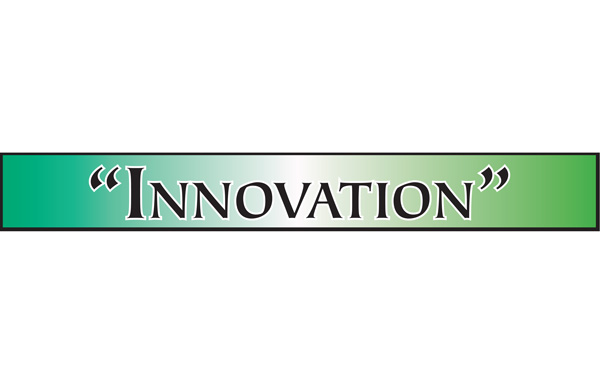
Trust at the core of new world of banking

By Martha Murorua
Nedbank Managing Director.
Digitisation has certainly impacted consumers’ need for branch banking, and who knows, the next generation may well be the one to bear witness to its eventual disappearance into oblivion. The period that lapses between one industrial revolution into the next has also been heavily curtailed because of the technological advancements of the last decade.
For instance, it took over a century from the first to the second industrial revolution, and then a similar period of time to evolve into the third industrial revolution around the 1970s. Many experts around the world are of the view that we are now in the fourth industrial revolution, which has taken us a much shorter period of time.
While the increasing pace of digitisation has been coming for decades, the COVID 19 pandemic unleashed changes that seemed unthinkable just a few months ago and compelled us to make rapid change, even faster than what any organisation could imagine. Various travel and lockdown restrictions on non-essential services coupled with social distancing rules obliged many of us to stay indoors, and the volume of online interactions rose while in person engagements plummeted – as expected.
For an industry that has, for hundreds of years, relied on hand-shakes and a friendly ‘Hello!’ to do business, build relationships and keep customers, this small shift in our reality has massive implications on how we operate going forward. There are many banking functions that may not even be worth the hassle to recreate for the virtual world.
Many customers have realised that the ‘new banking normal’ is preferential. Online and mobile banking both offer convenience and the generosity of doing banking at your own leisure. These technological advancements are also geography-agnostic (we can do anything from anywhere) and will most likely play a bigger role in our lives even as our movement restrictions ease up.
A recent MasterCard survey found that 73% of US customers were transacting online, and a fifth of those were first-time users of online banking. In the UK, the closure of bank branches has accelerated by as much as 70%, and Accenture, a leading global consulting firm, believes there could be as few as 800 brick-and-mortar branches by 2025.
Social distancing has moved us slightly apart from each other, as individuals. But, with fewer of us doing things ‘the old way’, the COVID-19 pandemic has created a rather obvious, physical gap between banks and their customers too. This means we have to make a number of big changes, very quickly, if we want to maintain our relevance in their lives.
This realization also underpins the technological innovations that Nedbank Namibia has brought to market, including the introduction of IdentityToday, a technology platform that allows you the convenience of opening a Nedbank account with a selfie. This is a notion that was previously quite unfathomable!
Unquestionable, there are organisational alterations: We need to evolve our services, and how we offer them. We need to innovate faster, so we can stay ahead of the next world-shaking problem. We need to radically adjust our hierarchical structures to bake-in flexibility, alongside the ability to quickly and radically adopt new technology, while fundamentally questioning how we will continue to remain profitable. No small task. But, none of these are as critical as the issue of trust.
In a recent, pre-COVID-19 study, trust (45%) had quickly risen above availability (40%), speed of service resolution (43%) and even price (43%) as the dominant factor that influences customers’ choice of bank. This is only going to increase.
Why is this so important right now? Because, when we live in an online, always-on, borderless world, price, ease, geographic locations and product will be even more commoditised – and then what will be left? When handshakes are replaced by UX interfaces, and cash is passed over in favour of the more convenient, evolved digital finances, the traditional face of the bank runs the risk of fading into the background and, if we’re not careful, so will those relationships.
Organisations need to operate in a heightened ethical manner, as well. There are very few things that can erode relevance as quickly as a basic lack of morality. Nedbank Namibia prides itself on its market conduct principles, aimed at providing our customers with all the information they need to make informed decisions about their money. This is the premise upon which we have solidified our relationship with the Financial Literacy Initiative, in order to engage Namibian consumers on financial education imperatives.
Trust, faith, confidence, belief – call it what you will. The fact remains that this is the most important asset banks have at their disposal if they want to stay in business. It’s incredibly fragile – built over years, and destroyed in seconds – which makes it even more valuable. Ever since the first clamshells were handed over in exchange for a decent return, or a new starter-cave at generous interest rates, people have been looking to us to help them, and their families, be more, do more and have more than they could without us – which is a huge responsibility. They entrust us with so much of their lives. We may have started viewing price and product and innovation and marketing as more important draw-cards, but, when it all washes away, at the core, is the trust that our clients have that we have their best interests at heart – and the successful organisations will be the ones who remain true to this.
As they say, ‘The more things change…’.
This is more important right now than it ever has been before. And not just because the relationship is changing. As things get tougher, the IMF earlier this year released that – Africa’s growth is expected to drop to -1.6%, her real per capita fall to 3.9% and according to the Namibian central bank’s last quarterly bulletin, our immediate economic impact will come primarily from reduced commodity exports and impairment of the tourism and transport industries – people will be looking to us and relying on us all the more.
And as per an updated Accenture ‘Purpose Driven Banking Survey’ report, currently, an ever-shrinking percentage of consumers small business owners turn to their bank for advice, which means we have a lot of room for improvement. As money experts, who strive to grow the well-being of our staff, clients, businesses and the greater Namibian society, Nedbank Namibia’s leadership are consistently engaged with all our stakeholders to make a real difference to people’s lives.
When reality is as risky as it has become, and customers are as wary as they are, the safe bets – the banks they trust – will have more pull than anyone else.
Being the go-to, reliable organisations our customers want us to be has direct benefits to our sustainability, too. The fact is that, as banking institutions, we are truly the architects of our own environments.
‘Shared value’ is no longer just the thirteenth chapter at the bottom of an annual report, and the more we work to shore-up our customers – without merely viewing them through the risk-reward lens – the better our revenue generating base will be, through good times, and bad.
The banks who start remembering that customers are people, not profits, are the ones who will inevitably earn the right to keep and grow both. The banks that bolster small business to survive, and partner with their clients to navigate through choppy waters will reap what they sow down the line. The organisations who relieve pain, offer consolation and hope when times are sharp and dark, are the ones who will be there when the lights come back on.
Banks and, dare I say all large, central businesses and organisations have a lot of work to do over the next few years. Being digital is no longer an option, and we need to transform. Remote working is a realty, and we need to accept this, and take advantage of it. But, more importantly, if we are going to rebuild our corporate brands, we need to first start, next door, and help our neighbours rebuild their homes, and rebuild the trust that will drive everything from this point on.
Trust above all else. The good guys will win, in the end.













































